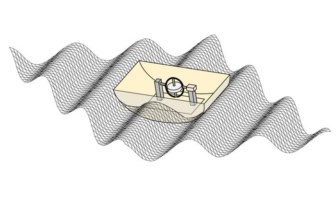Two physicists from the US have used statistical analysis to predict that the recovery of the US stock market will continue only until next spring. It will then continue to fall severely for another year -- diminishing any hopes of seeing a return on your investments in the near future (D Sornette and W.-X Zhou 2002 Quantitative Finance 2 468).
Stock markets rely on “positive feedback”, which means that if traders start to sell, other investors, big and small, follow suit. If traders buy, then investors begin to buy too. This leads to waves of behaviour — or “herding” — that reinforce a bull or a bear market. If this herding is left unchecked, it can cause runaway effects if a bullish bubble bursts — a “crash”. A drawn-out bear market however, leads to an “anti-bubble ” phase — a period of decline following a market peak.
Didier Sornette and Wei-Xing Zhou, who are based at the University of California at Los Angeles, have now identified an anti-bubble in the US stock market index. The researchers analyzed the markets using the statistical physics of critical phase transitions and identified two main signatures of criticality. The first appears in the increase (for a bull phase) or decrease (for a bear phase) of the price up to the end of the speculative bubble or anti-bubble. The second appears in the modulations –the “ups” and “downs” — of this increase or decrease. The current increase observed in the market index is simply an “up” in the overall downward trend, according to Sornette.
The researchers found that there was a clear similarity in the behaviour of the US market index from 1996 to August 2002 and of Japan’s Nikkei index from 1985 to 1992. They saw a similar anti-bubble in the Nikkei index at the beginning of the 1990’s — which marked the beginning of a decade of decline for Japan. They attribute the decay of the US market index since August 2000 to herding behaviour.
The researchers are, however, unable to predict how the market will behave after 2004 because it may depart from the anti-bubble regime and have additional non-linear effects.



